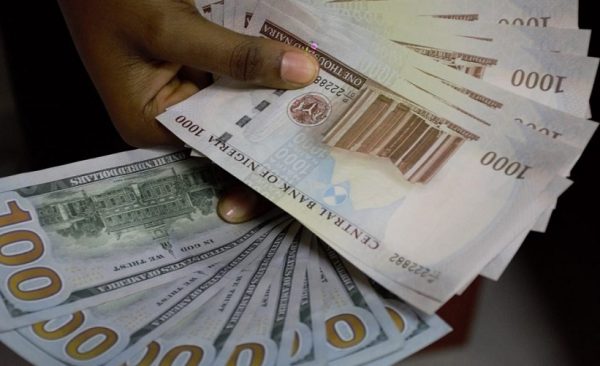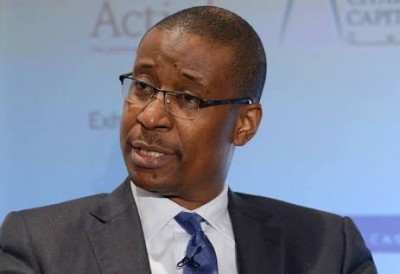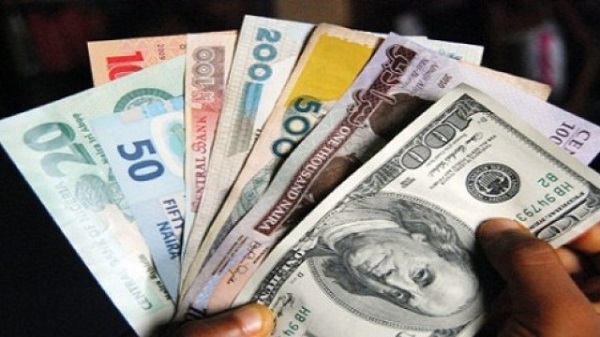Naira Tumbled 41% In 2024, Defies CBN’s Forex Reforms
The official exchange rate between the naira and the United States dollar ended in 2024 at N1,535/$, an analysis of data from the Central Bank of Nigeria has shown.
This was a 40.9 per cent depreciation over the year when compared to the official rate at the close of 2023, which stood at N907.11/$.
The significant depreciation comes amid the CBN’s introduction of several foreign exchange policies aimed at enhancing market transparency and attracting foreign investors.
These measures included reforms such as the unification of FX windows under the Nigeria Foreign Exchange Market and the introduction of the Nigerian FX Code, which mandated ethical conduct and governance among market participants.
On the parallel market, where the naira trades unofficially, the currency exchanged at N1,660/$ at the end of 2024.
This represents a 26.8 per cent depreciation from N1,215/$ recorded at the close of 2023.
The year saw the CBN aggressively expand market-friendly policies to stabilise the FX market and attract foreign investment.
This year, the CBN announced that it had successfully cleared all valid FX backlogs, fulfilling a key commitment by Governor Olayemi Cardoso to address the inherited $7bn in outstanding claims.
In May 2024, the CBN issued revised guidelines to strengthen the operations of Bureaux de Change operators in Nigeria.
The guidelines define permissible activities for BDCs, such as sourcing foreign currency from specified entities and selling foreign exchange for purposes like Personal Travel Allowance and Business Travel Allowance.
The CBN automated foreign currency trading to replace the over-the-counter system, improving market efficiency and oversight.
Another key intervention was the direct selling of FX to BDCs at different times this year.
The apex bank also sold FX on the official market but at a minimal level.
Also, the Nigerian FX Code, introduced in October, set ethical and operational standards for market participants, with mandatory compliance deadlines by the end of 2024.
To bolster foreign reserves and reduce pressure on the naira, the apex bank initiated the Voluntary Disclosure and Repatriation Scheme, allowing individuals and businesses to deposit and invest internationally tradable foreign currencies in designated domiciliary accounts.
There was also the Nigeria Foreign Exchange Market framework, which consolidated all FX trading windows into a unified market to improve transparency and liquidity.
BDC operators were temporarily allowed direct access to buy FX from authorized dealers with a weekly cap of $25,000, a measure implemented during the festive season to meet heightened demand.
Despite these interventions, the naira faced immense pressure from limited foreign exchange inflows, the widening gap between official and parallel market rates, and lingering effects of capital flight by foreign investors.
The World Bank listed the naira among the worst-performing currencies in Sub-Saharan Africa in 2024.
The depreciation of the naira is attributed to several factors, including surging demand for United States dollars in the parallel market, limited dollar inflows, and delays in foreign exchange disbursements by Nigeria’s central bank.
The World Bank’s report further highlights that demand for dollars, driven by financial institutions, non-financial end-users, and money managers, has exacerbated the pressure on the naira.
However, the International Monetary Fund has reported that the naira is showing signs of stabilisation, attributing this to recent interest rate hikes and efforts by the Central Bank of Nigeria to address foreign exchange backlogs.
President Bola Tinubu, during his budget presentation speech, said the proposed budget was based on the projections that inflation will decline from the current rate of 34.6 per cent to 15 per cent next year.
He projected that the exchange rate will improve from approximately N1,700 per US dollar to N1,500 and a base crude oil production assumption of 2.06 million barrels per day.
The President of the Association of Bureau De Change of Nigeria, Aminu Gwadebe, earlier said the N1,500/$ peg in the 2025 Appropriation Bill was within reach on the back of recent foreign exchange reforms being pushed by the CBN.
However, Fitch Ratings, a global credit rating agency, noted that a larger-than-expected budget deficit in 2025 could lead to further naira depreciation, higher inflation, and increased borrowing costs, ultimately threatening the government’s reform agenda.








